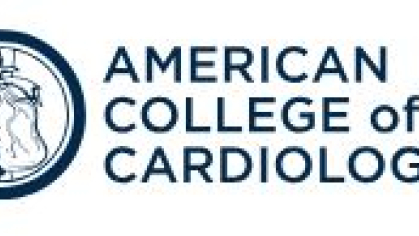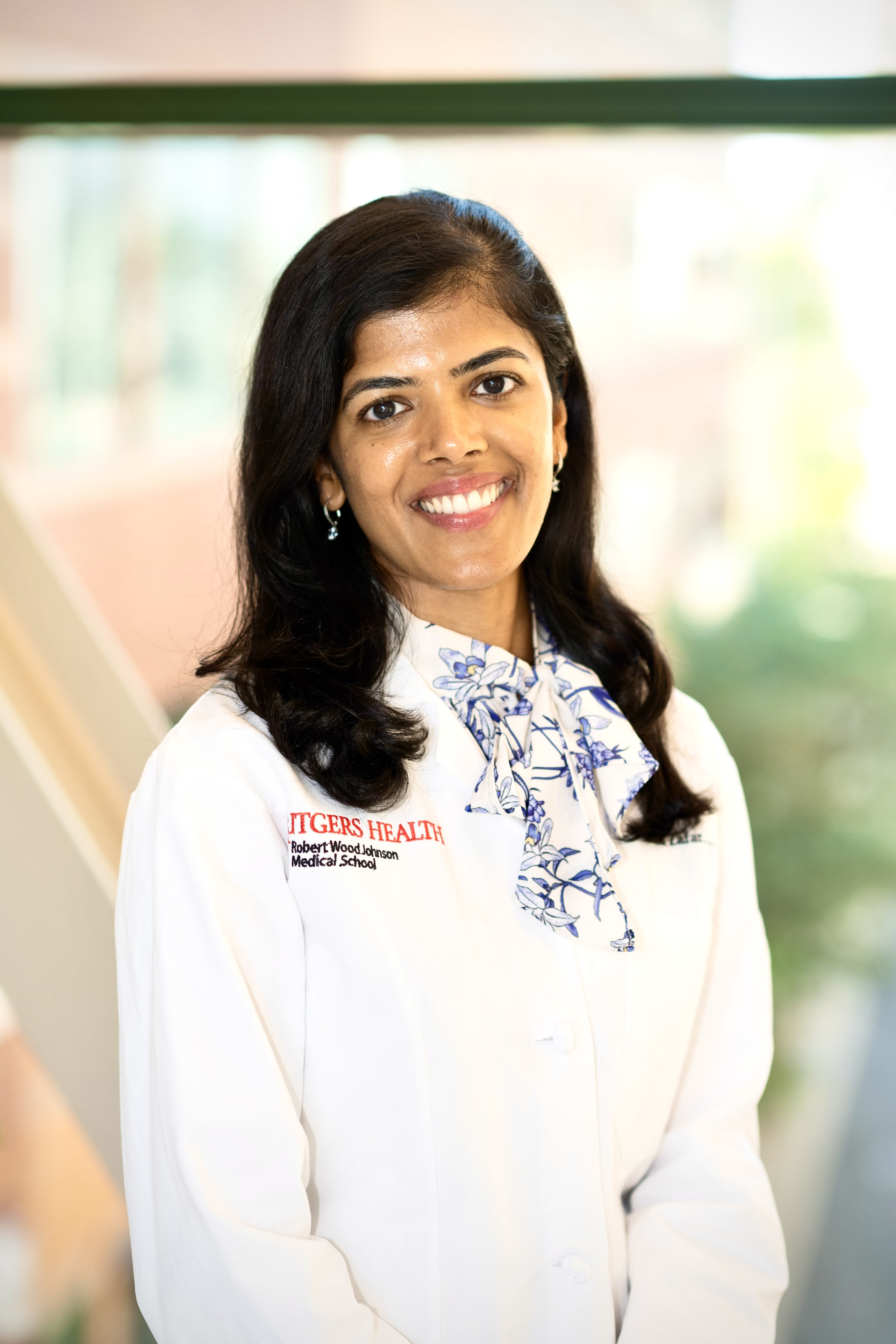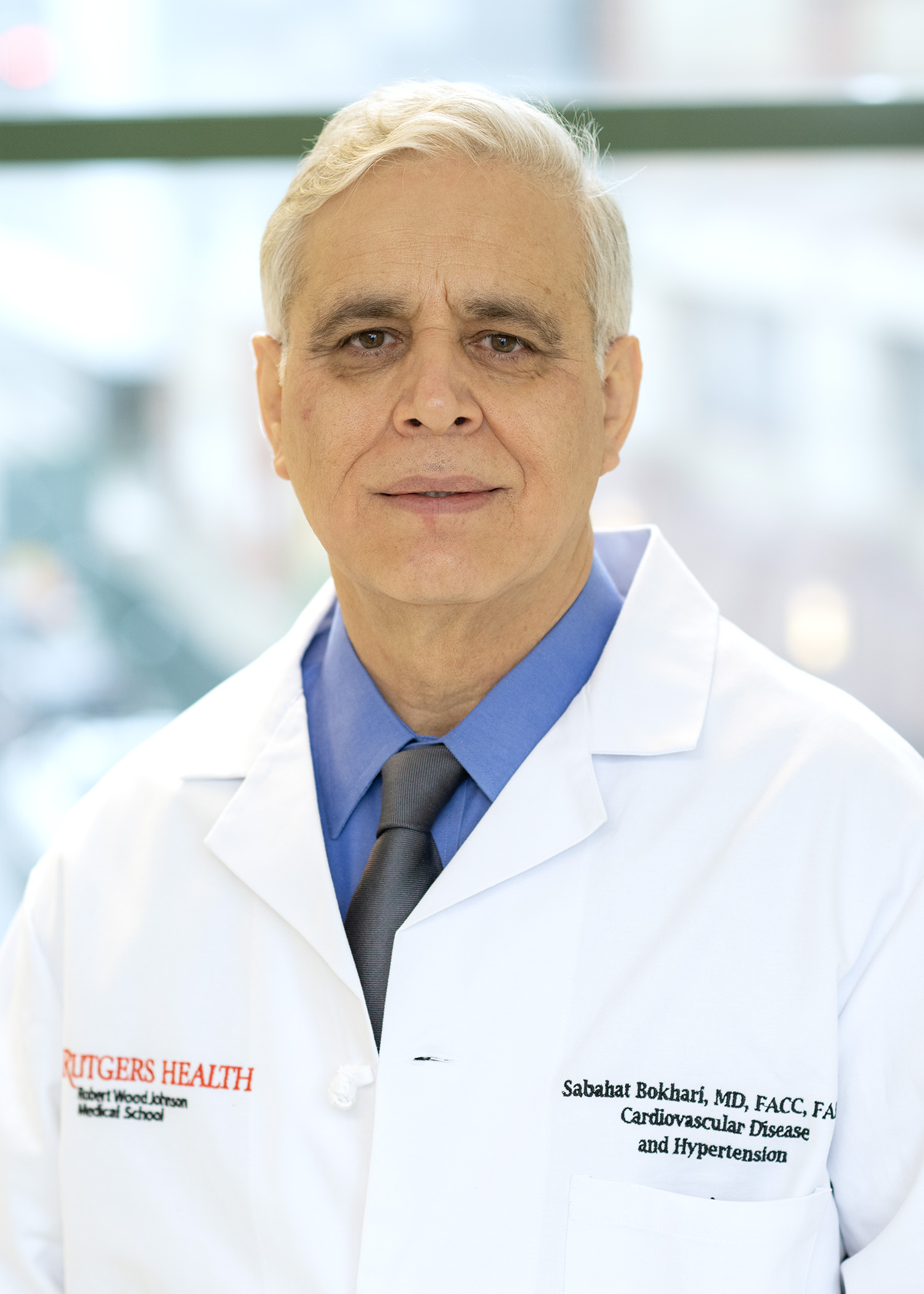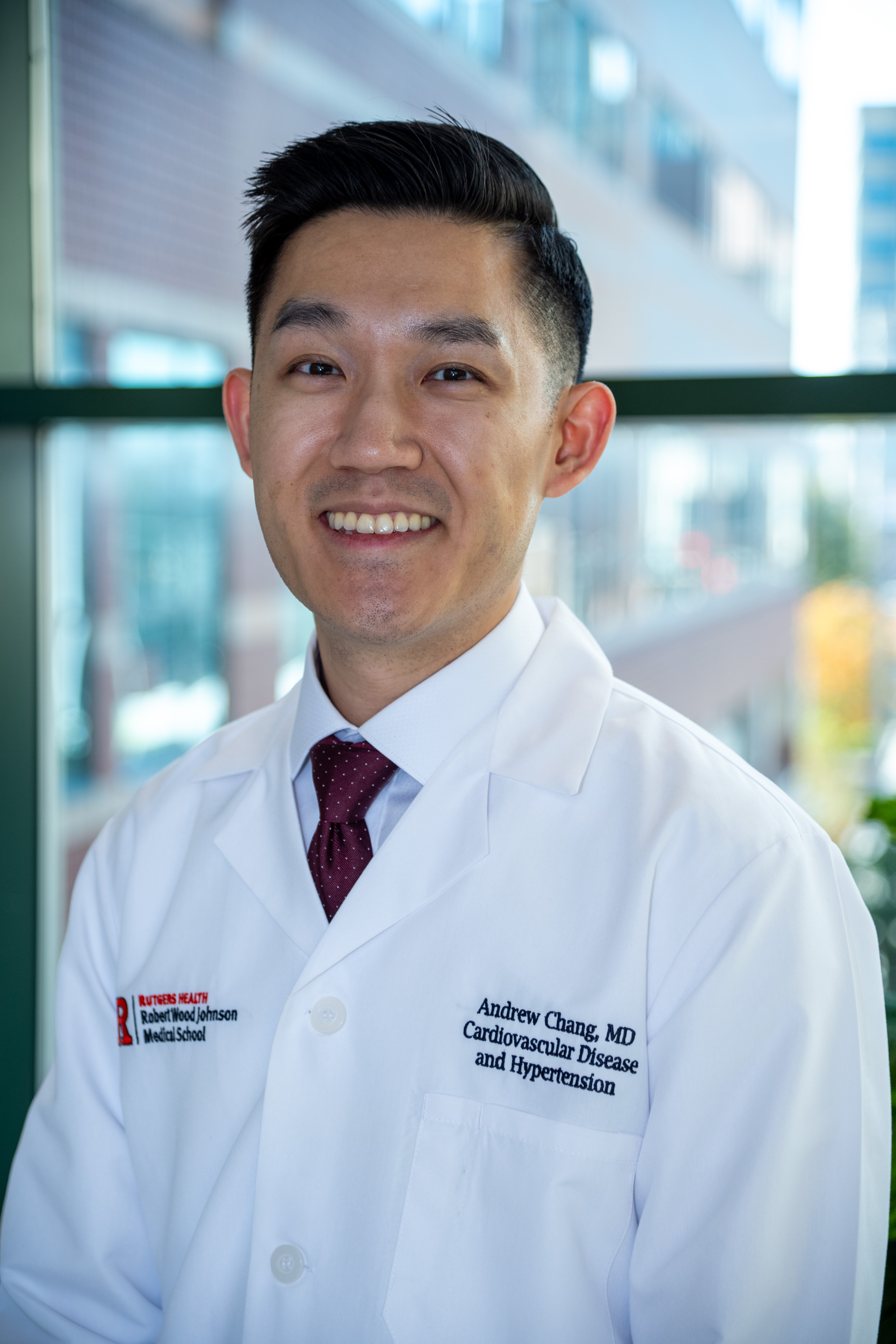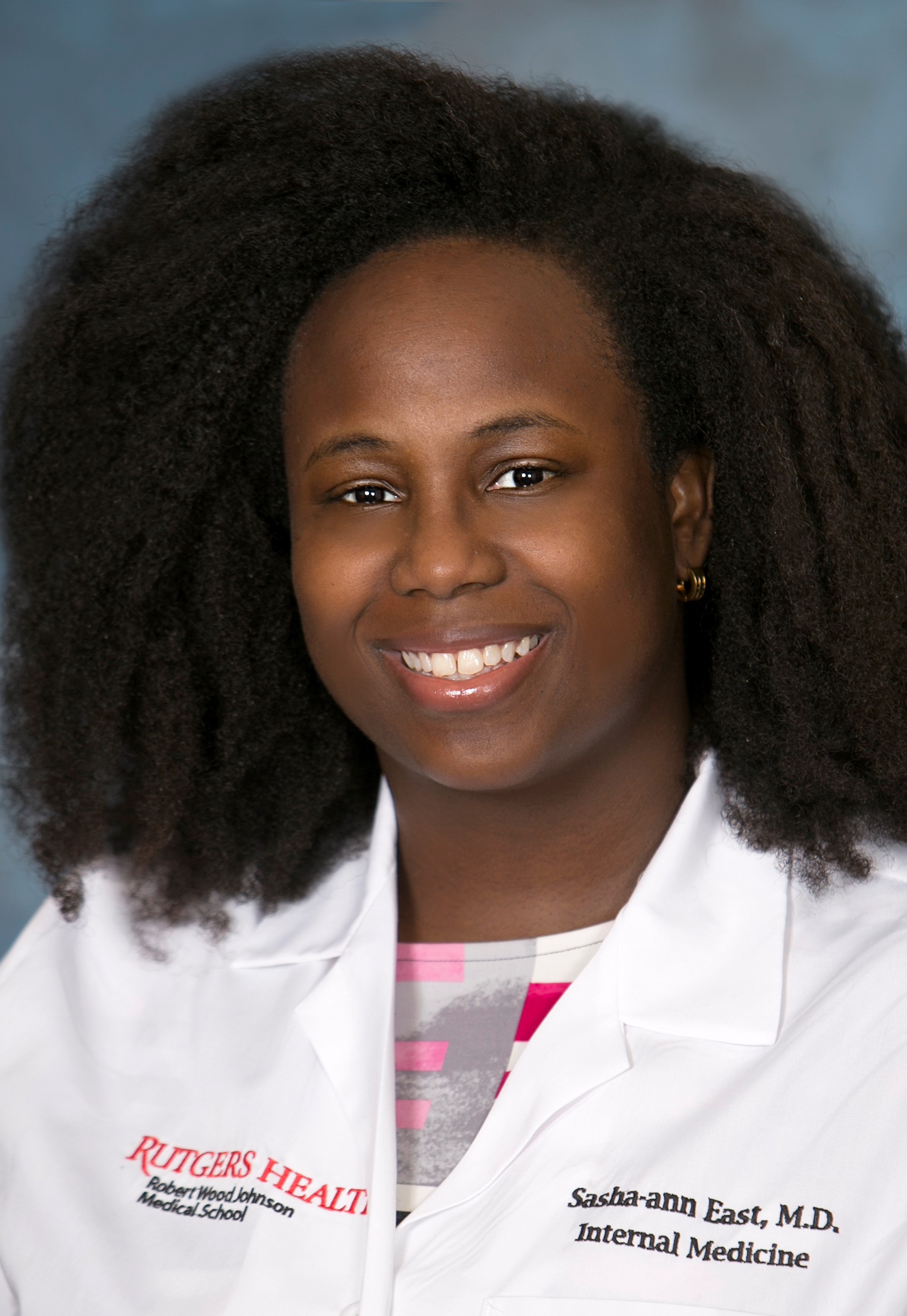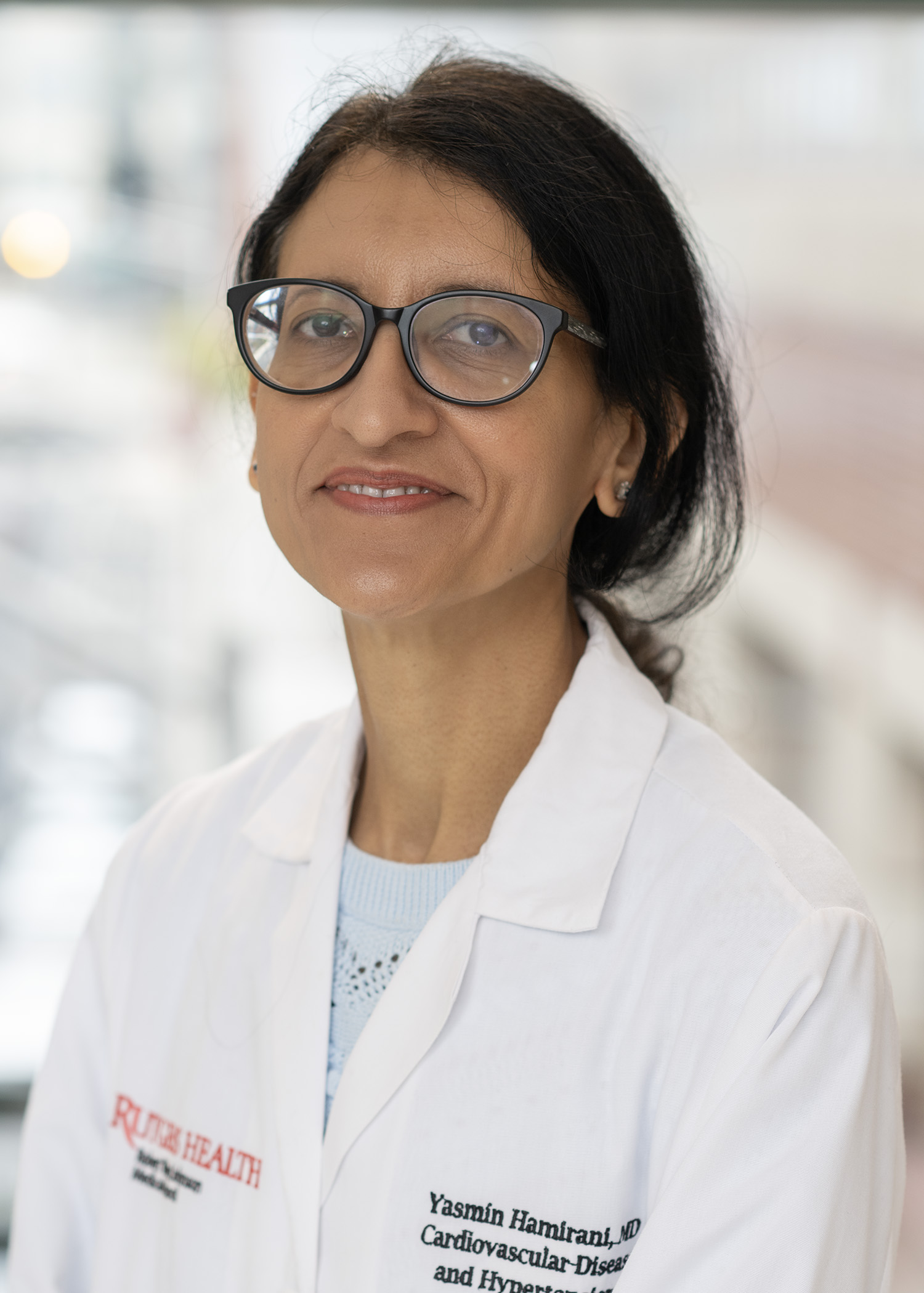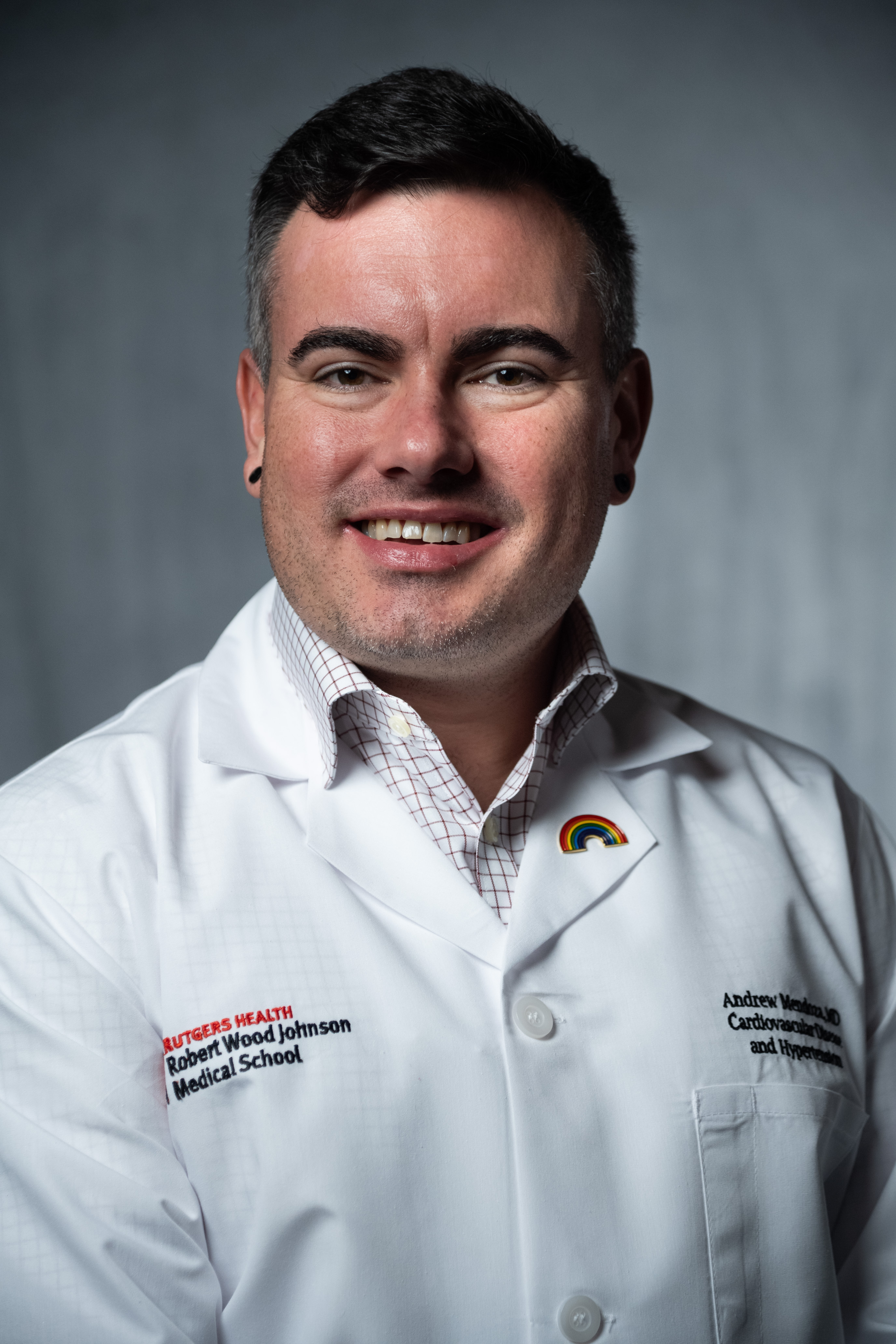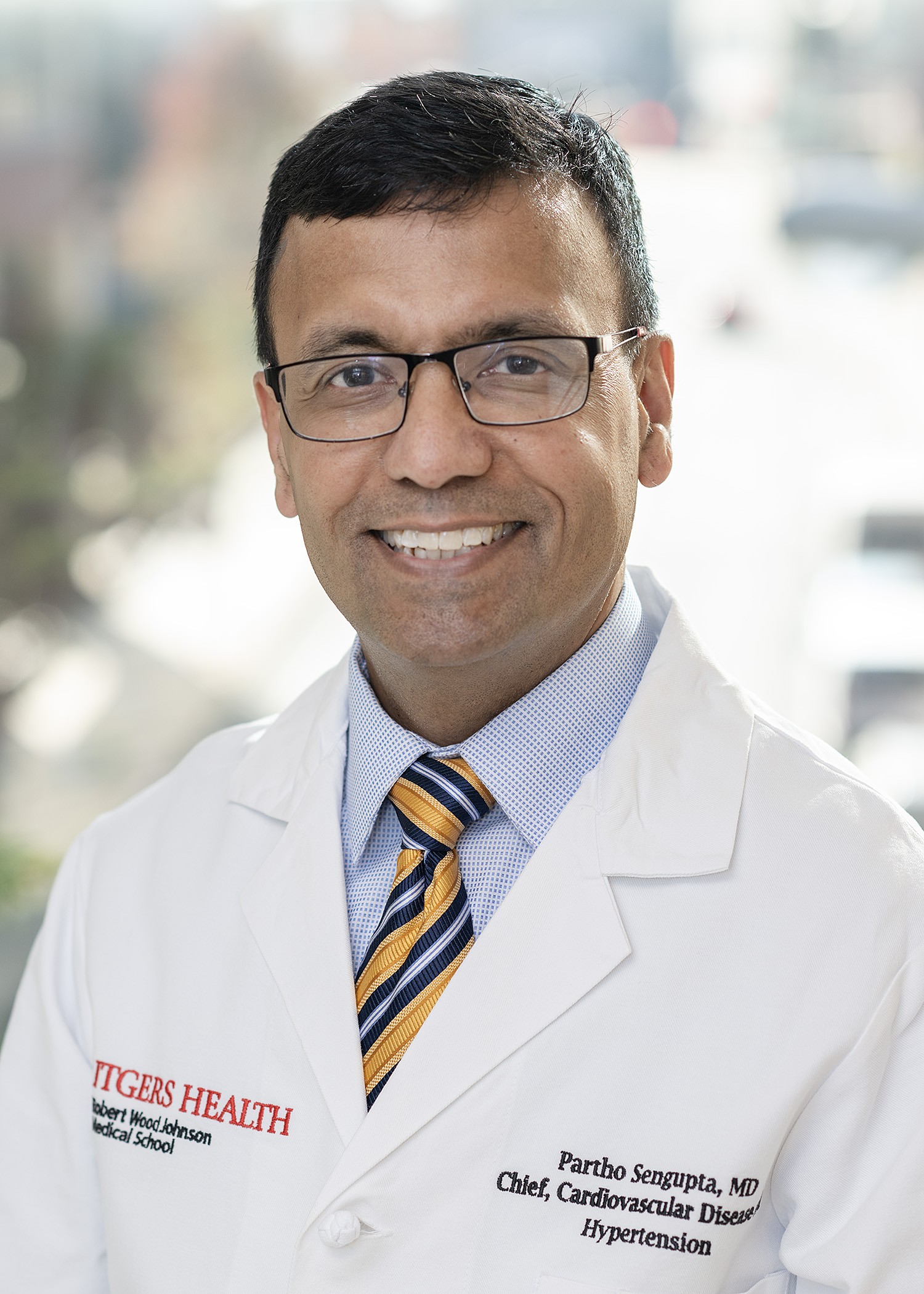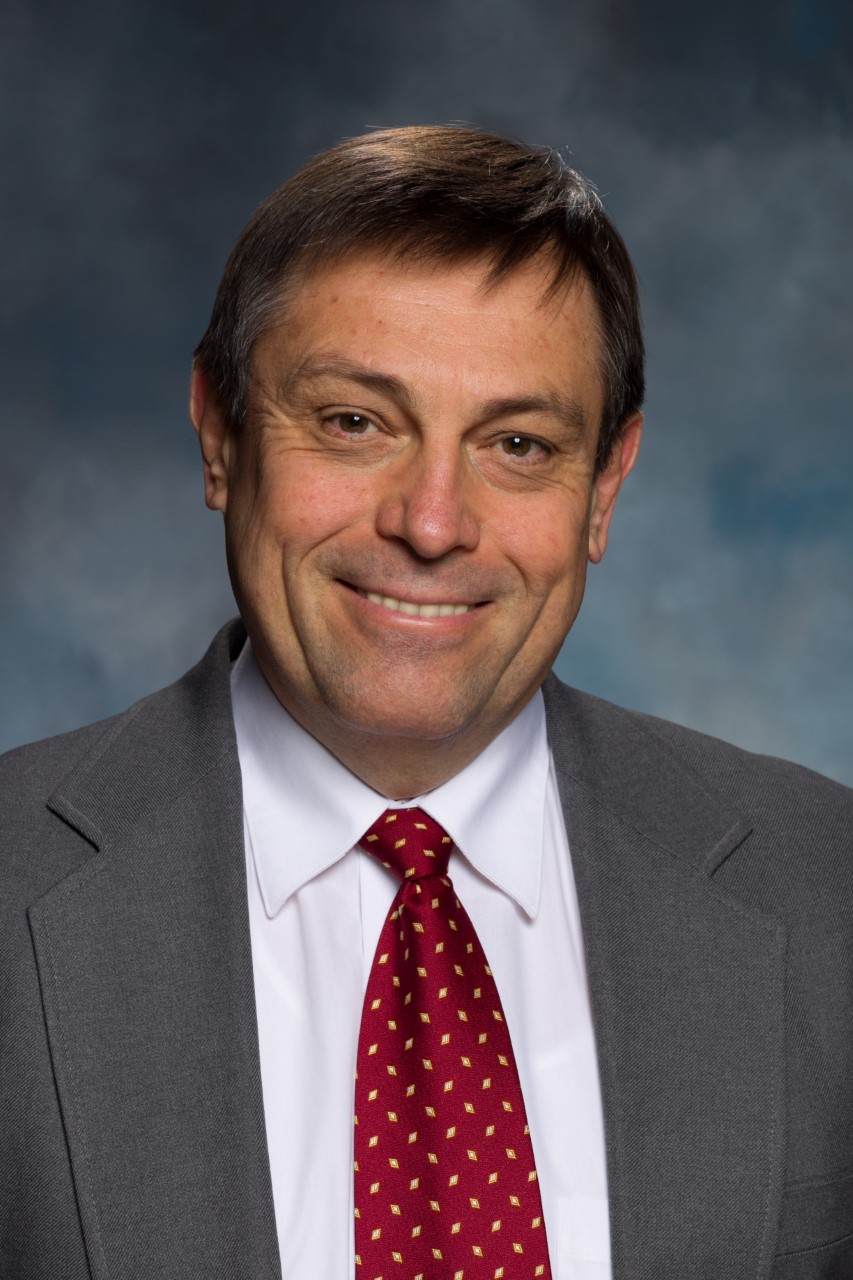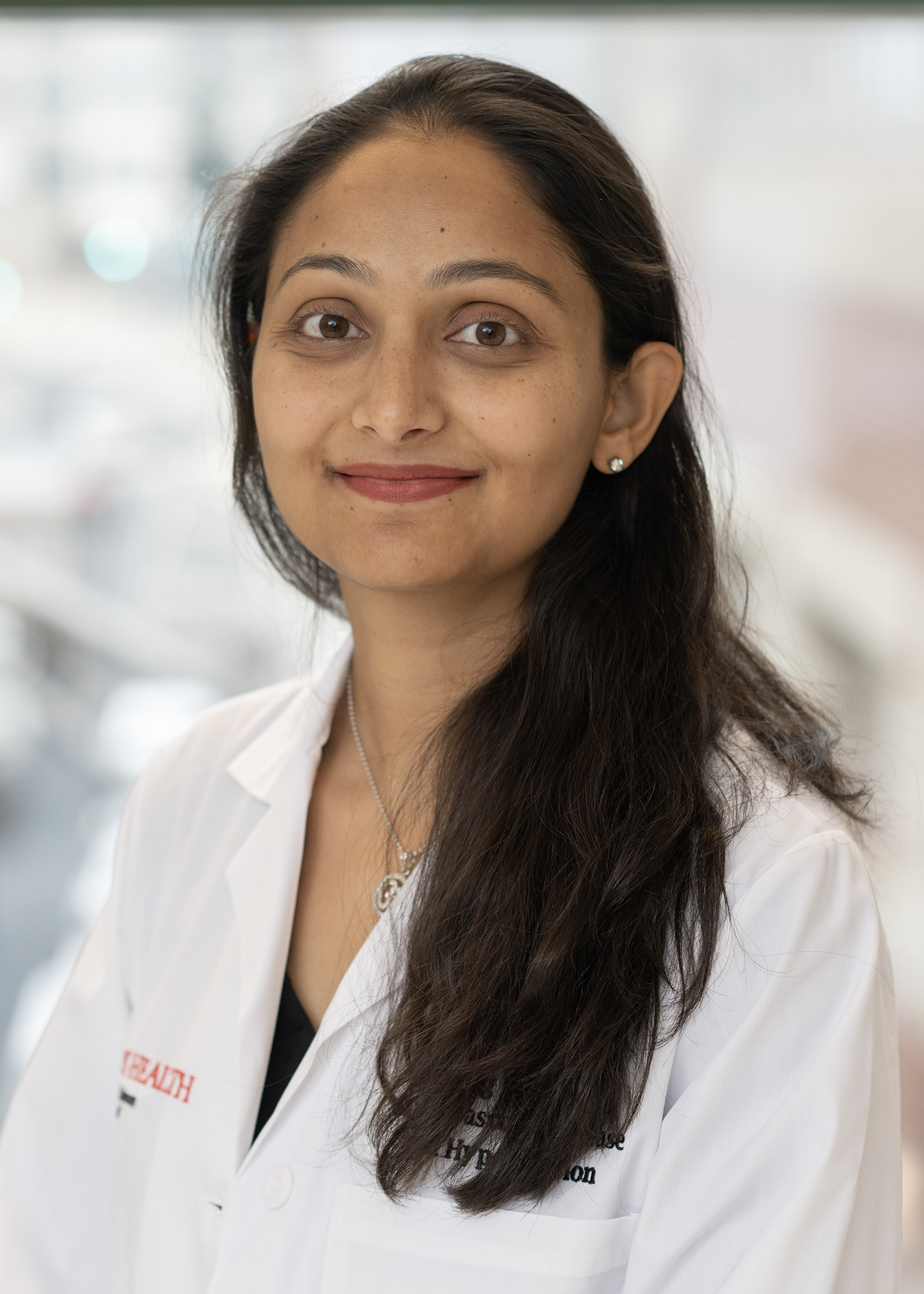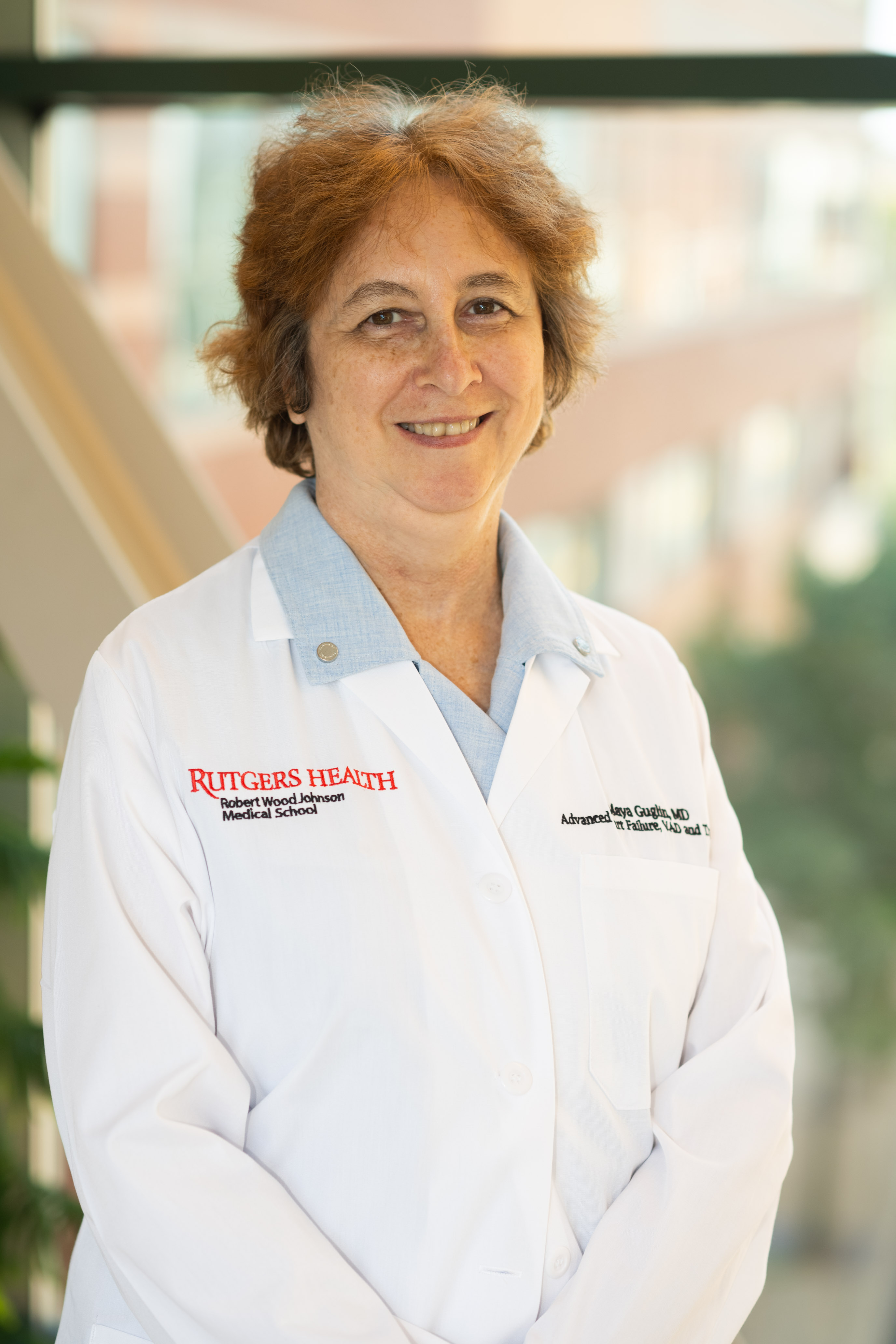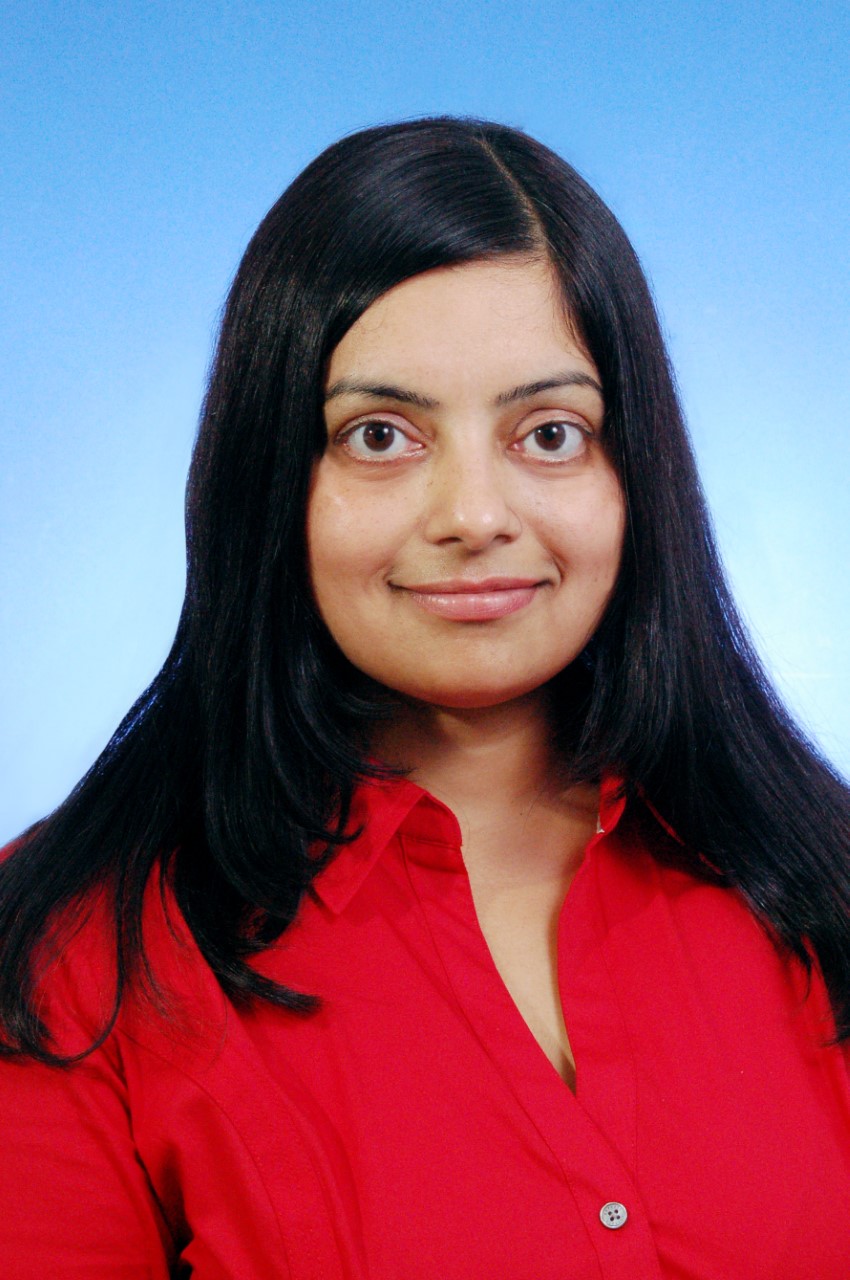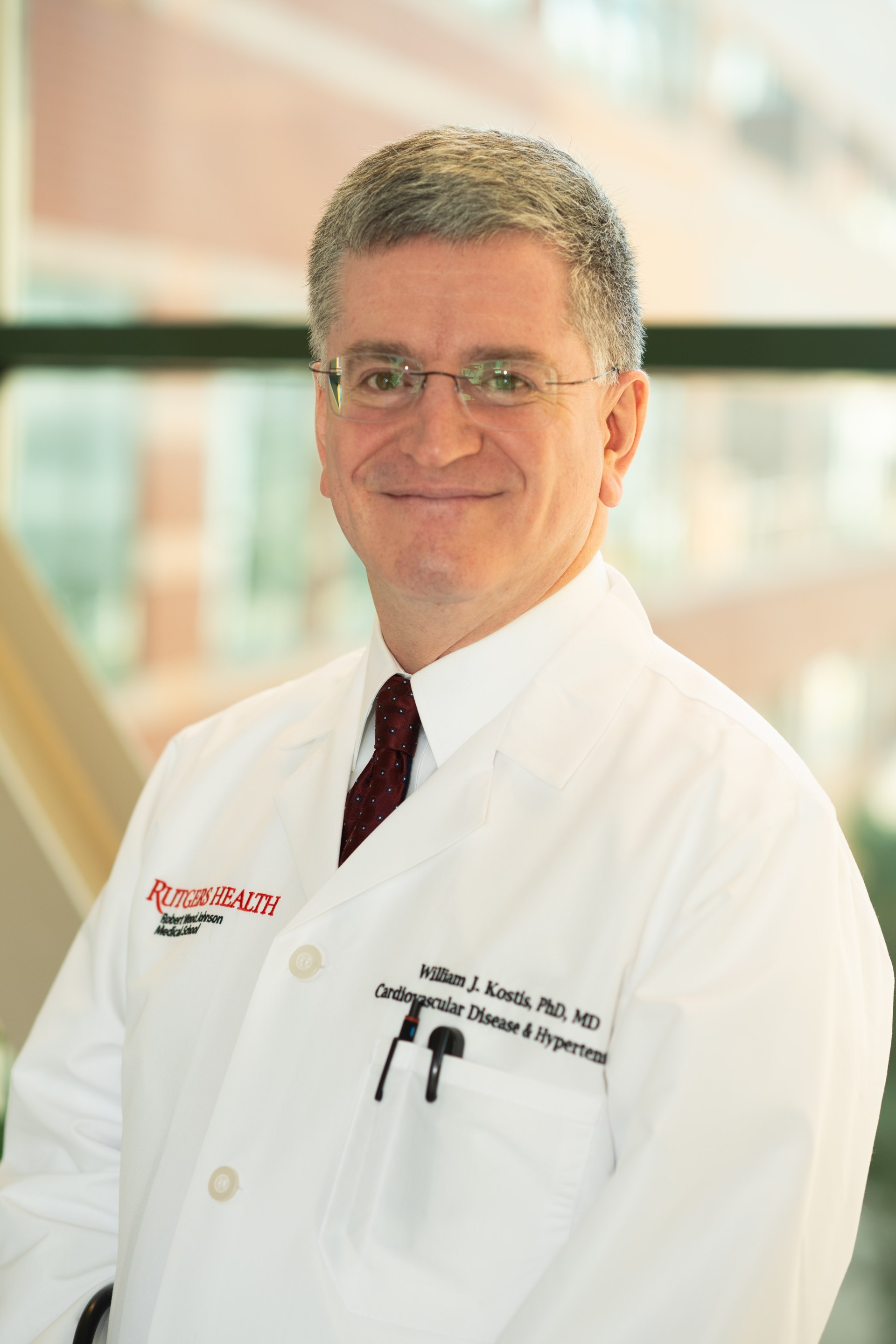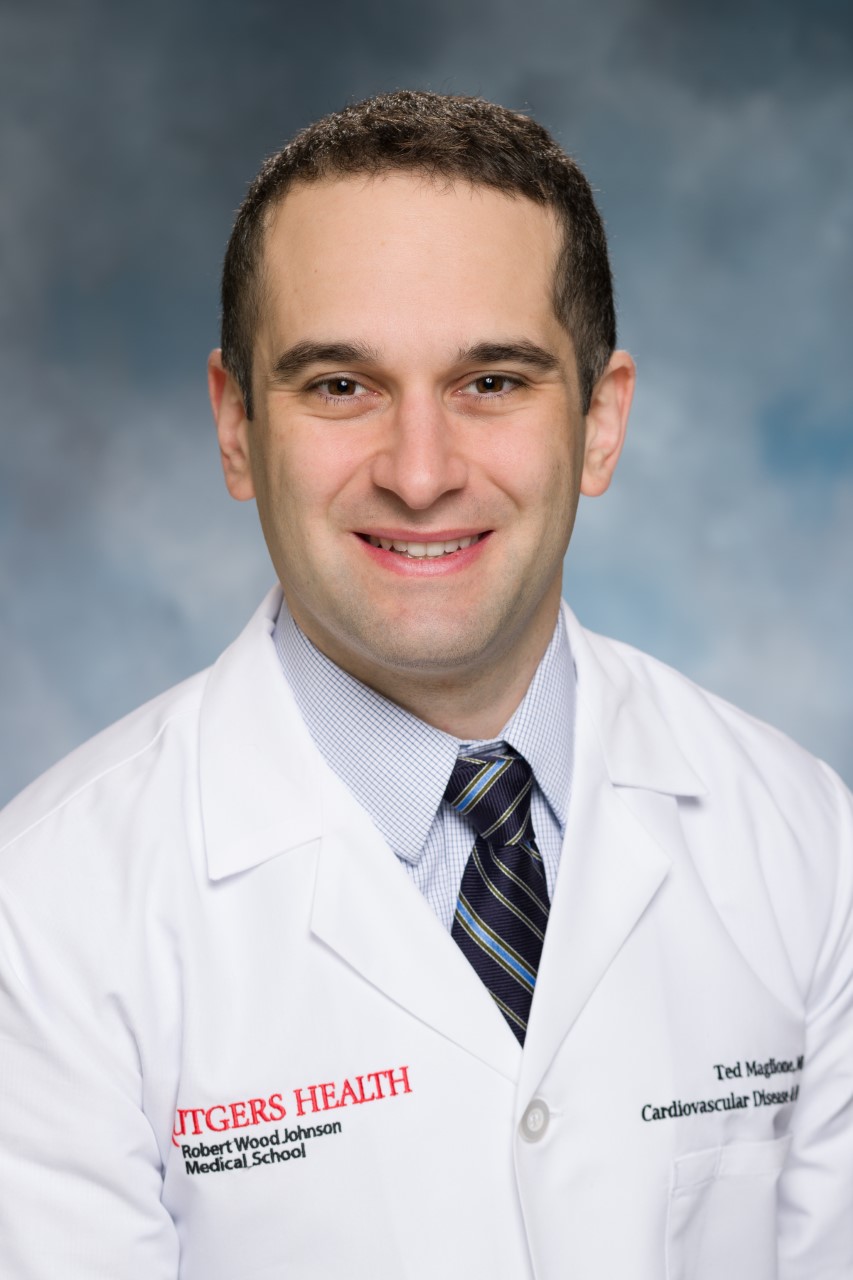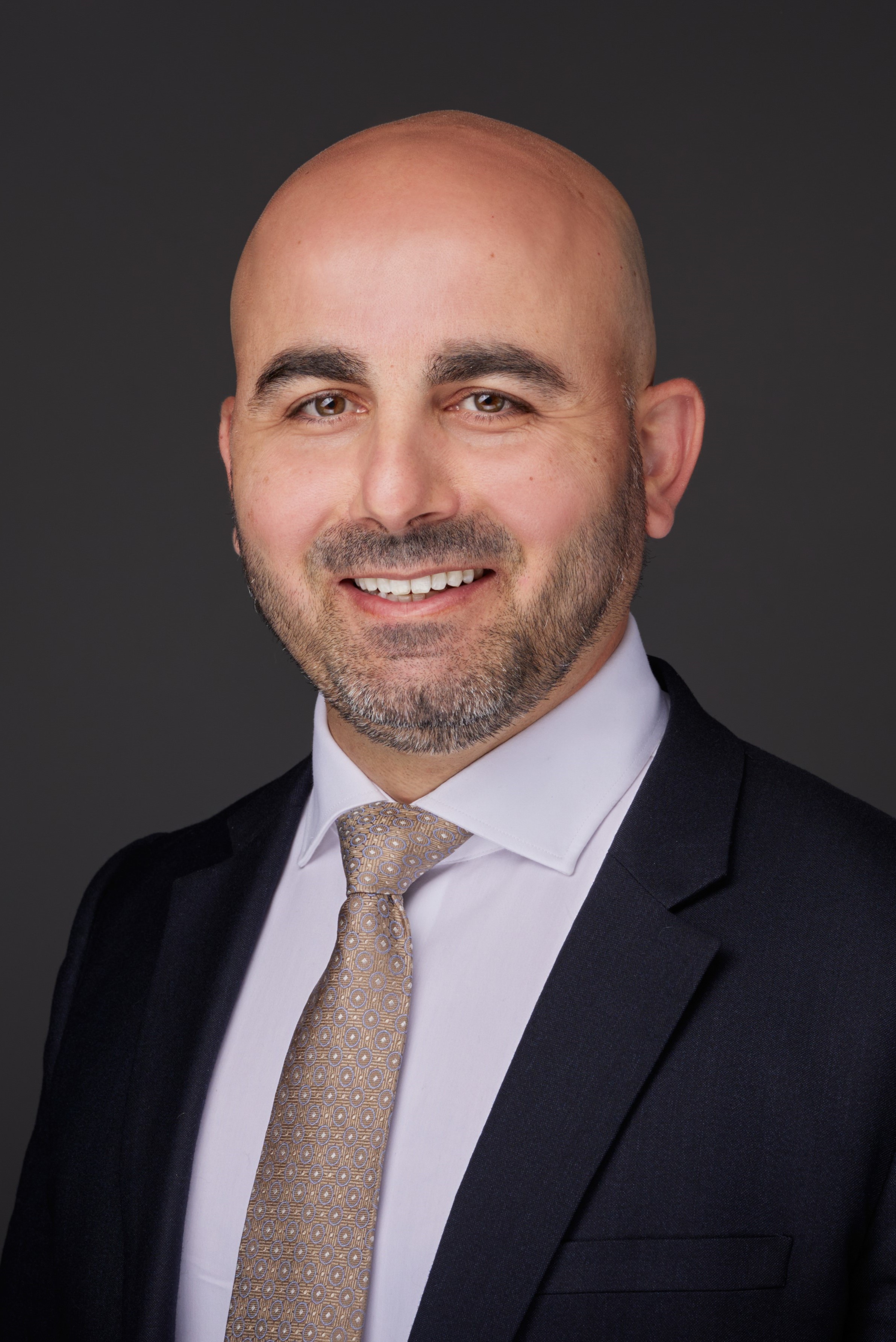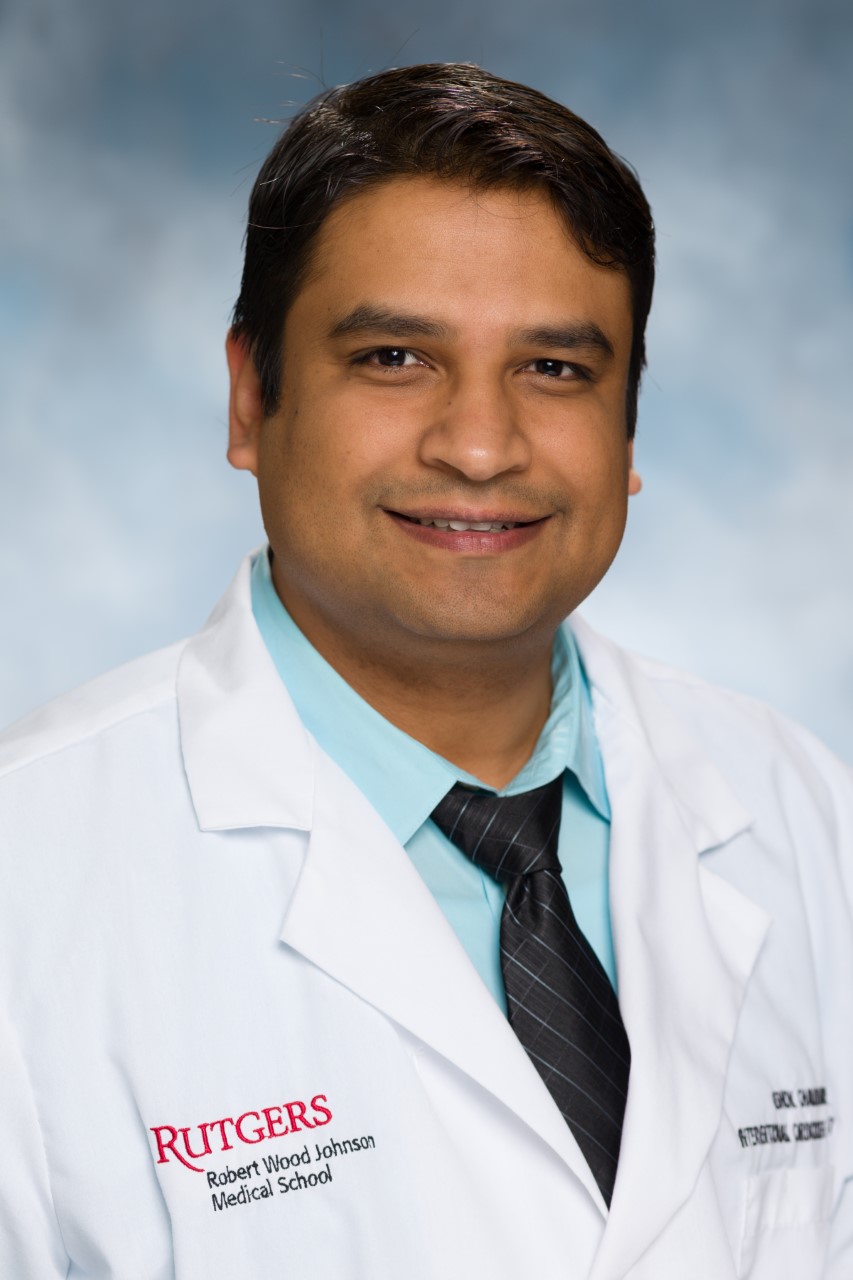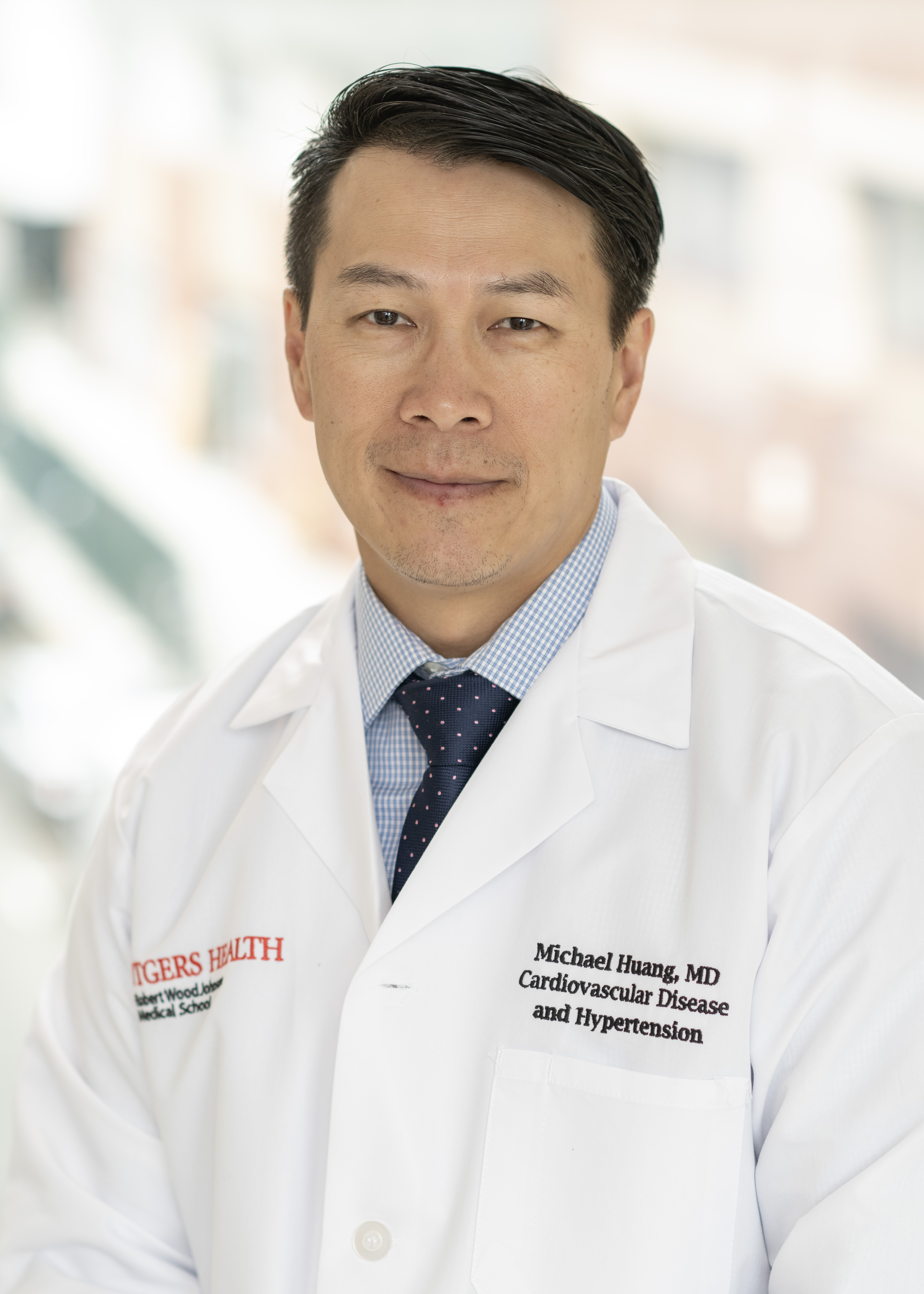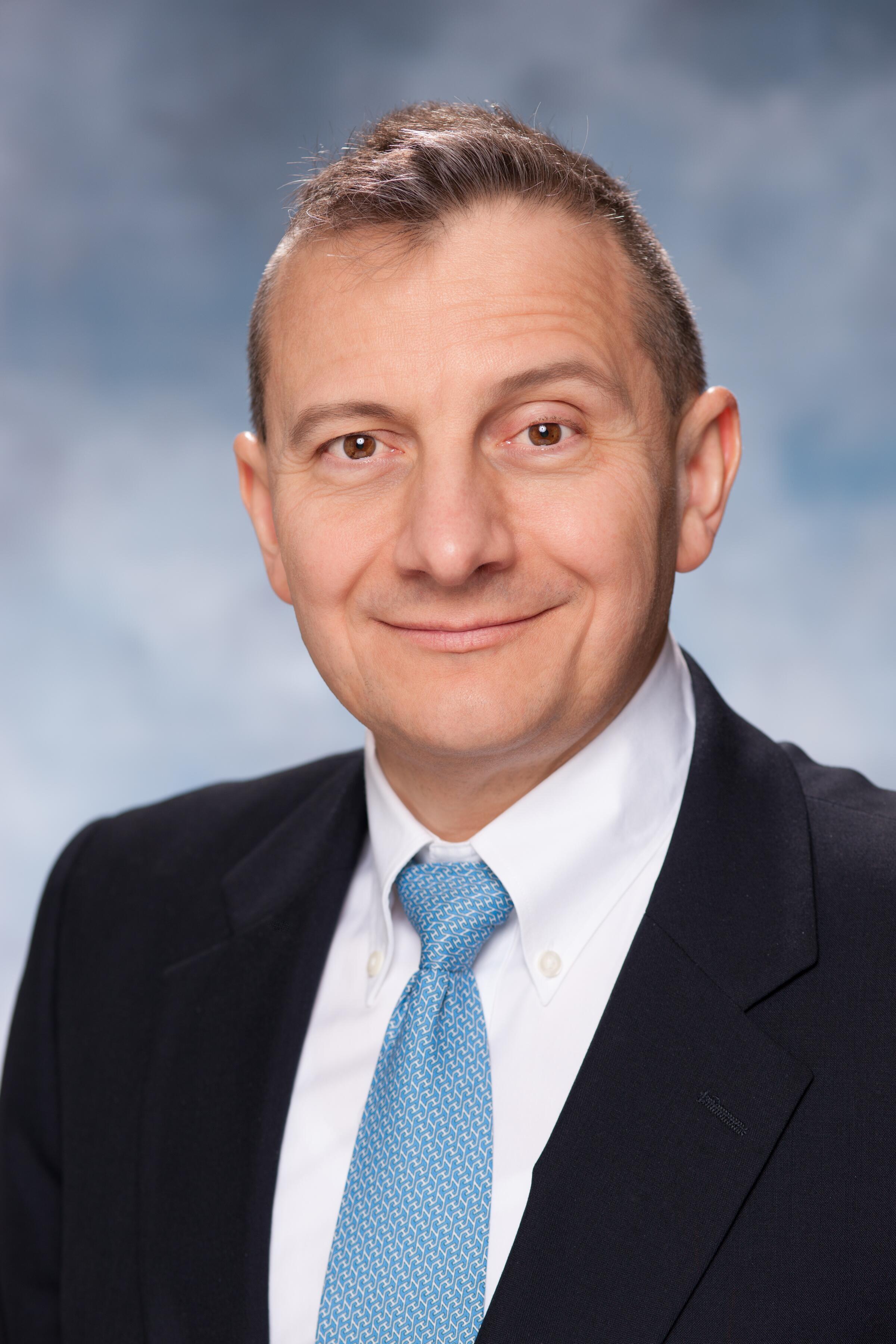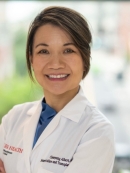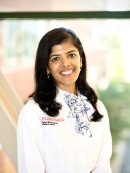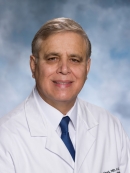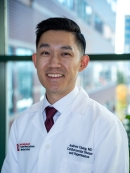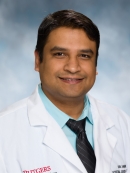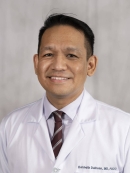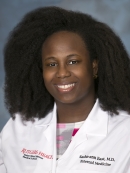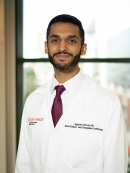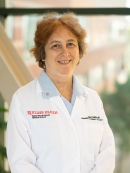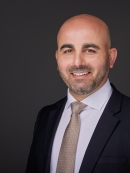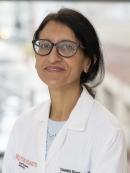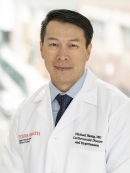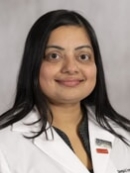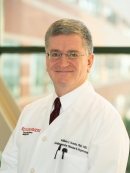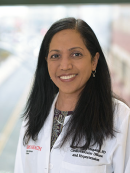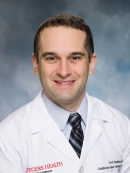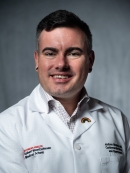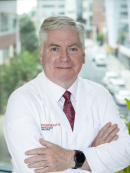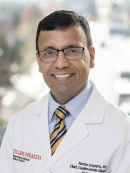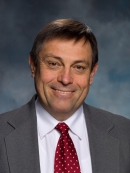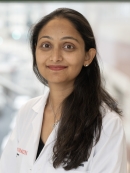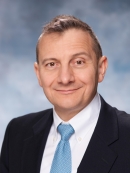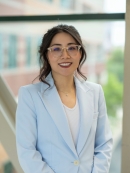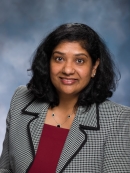
Division of Cardiovascular Diseases and Hypertension
Message From The Chief
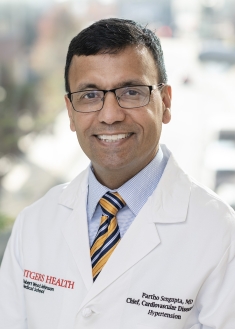
Chief of the Division of Cardiovascular Diseases & Hypertension, RWJMS
Chief of Cardiac Services, RWJUH
As chief of the Division of Cardiovascular Disease & Hypertension at Robert Wood Johnson Medical School and Robert Wood Johnson University Hospital, I am pleased to share the remarkable advancements we’re making in heart and vascular care. Our goal is clear: to provide innovative and personalized cardiovascular care, train the next generation of leaders in cardiology, and advance research in cutting-edge discoveries for unparalleled patient care.
Specialty care is provided for patients with coronary artery disease, acute coronary syndromes, valvular heart disease, cardiomyopathies, heart failure, congenital heart disease and arrhythmias, including specific highlighted areas of:
- Primary prevention
- Women’s heart disease
- Cardiac ultrasound and stress testing services
- Advanced cardiac imaging (CT, MRI, PET)
- Coronary revascularization
- Structural interventions
- Pacemaker and ICD insertion and follow-up
- Cardiac Amyloidosis
- Hypertrophic cardiomyopathy
- Cardiac transplantation
- Pulmonary Hypertension
As one of the fastest growing academic programs in New Jersey, and with our esteemed association with RWJBarnabas Health, we lead the state in heart health and research, serving more patients than any other network.
Medical students at Robert Wood Johnson Medical School gain hands-on experience and exposure to cardiovascular medicine early in their education. At the undergraduate level, our divisional faculty play a pivotal role in teaching cardiovascular diseases in the second-year Pathophysiology course and serve as mentors during Physical Diagnosis and OSCE (Objective Structured Clinical Exam) sessions. During third- and fourth-year Medicine clerkships, faculty conduct lectures and supervise students on cardiovascular diseases clinical and research rotations.
At the post-graduate level, faculty train resident physicians in both invasive and non-invasive cardiology, as well as mentor medical students, residents, and subspecialty fellows in clinical research.
As attending physicians on the Cardiology Consultation Services, our faculty are directly involved in patient care at Robert Wood Johnson University Hospital (RWJUH) in New Brunswick, RWJUH Hamilton, and Saint Peter’s University Hospital. Faculty also lead specialized programs, serving as directors of the Catheterization, Echocardiography, and Electrophysiology Laboratories, and the Advanced Heart Failure/Transplant Program at RWJUH.
Our faculty and medical team are participating in groundbreaking innovations and sponsored research and committed to collaborate with industry and academia to shape the future of cardiovascular care continuum from communities to our tertiary care facilities.
Partho Sengupta, MD, DM, FACC, FASE
Chief of the Division of Cardiovascular Diseases & Hypertension, RWJMS
Chief of Cardiac Services, RWJUH
News & Media

Five Tangible Ways That Technology Is Transforming Cardiac Care

How Dr. Naveena Yanamala is rewiring cardiology with AI/ML
Non-Invasive Cardiology
The Non-Invasive Cardiology Section is dedicated to advancing cardiovascular care through expert imaging, compassionate service, and ongoing innovation. We provide high-quality echocardiographic services including transthoracic, transesophageal, and stress imaging—to support accurate diagnoses and guide effective treatment for both inpatients and outpatients. Focusing on clinical excellence, we integrate the latest imaging technologies and collaborate across specialties to ensure comprehensive, patient-centered care. We are also deeply invested in the future of cardiovascular medicine, conducting impactful research and offering hands-on education to trainees and healthcare professionals. Through these combined efforts, we aim to improve cardiovascular outcomes and set new standards in non-invasive imaging.
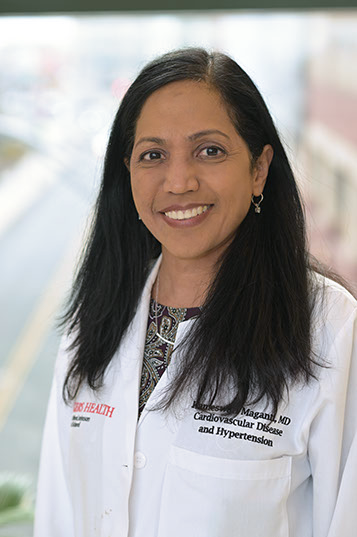
|
Non-Invasive Cardiology Faculty
|
|
|
|
|
||||
|
|
|
|
|
||||
|
|
|

Non-Invasive Cardiology Programs
Advanced Heart Failure
The Advanced Heart Failure Section is committed to improving the lives of patients with cardiomyopathy and heart failure through personalized, comprehensive care from early diagnosis to advanced therapies such as ventricular assist devices and heart transplantation. By combining cutting-edge diagnostics, innovative device-based treatments, and a multidisciplinary approach, our team delivers expert evaluation and management tailored to each patient’s needs. As a leading center in New Jersey, we advance heart failure care through ongoing research, collaboration, and education, striving to uphold the highest standards in treatment and outcomes for patients facing complex cardiac conditions.
|
|
|
|
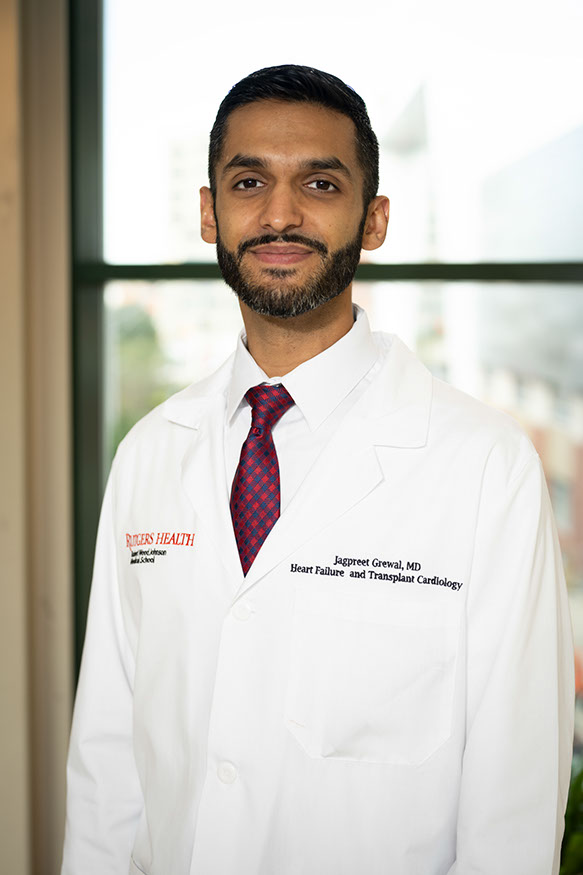
|
|
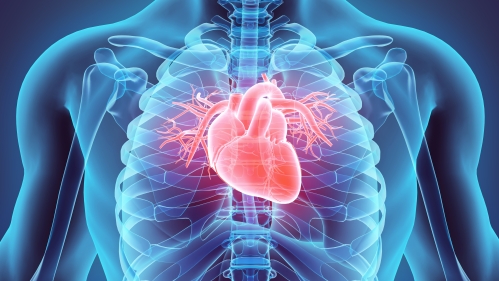
Advanced Heart Failure Programs
Electrophysiology
The Electrophysiology Section delivers expert, individualized care for patients with heart rhythm disorders by utilizing the latest diagnostic and therapeutic technologies. We provide comprehensive evaluations through advanced electrophysiologic studies to accurately diagnose arrhythmias and enable precise, effective treatment. Our innovative therapies including minimally invasive radiofrequency ablation, pacemaker insertion, and automatic defibrillator implantation restore and maintain healthy heart rhythms. These treatments improve patient outcomes and offer long-term protection against life-threatening arrhythmias. Through this commitment to cutting-edge care, we strive to enhance quality of life and safety for every patient we serve.
|
|
|
|
|
|

Electrophysiology Programs
Interventional Cardiology
The Interventional Cardiology Section consists of dedicated physicians who lead the advancement of minimally invasive, catheter-based treatments that transform cardiovascular care and improve patient outcomes. With expertise and compassion, our physicians perform a comprehensive range of diagnostic and therapeutic procedures to accurately assess and manage complex heart and vascular conditions in state-of-the-art laboratories. Committed to innovation and clinical excellence, they continuously push the boundaries of interventional cardiology to deliver safe, effective, and personalized care, setting new standards for the future of heart treatment.
|
|
|
|
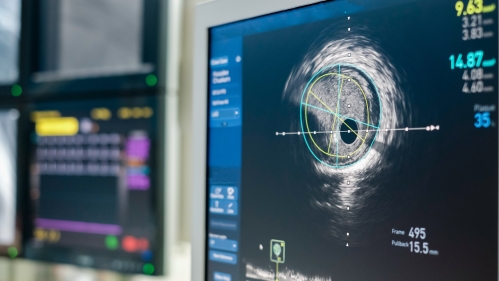
Interventional Cardiology Programs
Cardiology Fellowship Program

Advance Your Career
The Cardiology Fellowship Program aims to prepare clinical and academic cardiologists for leadership roles in cardiovascular medicine, basic and clinical research, and clinical cardiology.
Advanced Cardiac Imaging Fellowship
Program Description:

The Advanced Cardiac Imaging Fellowship Program is a 12-month program that provides hands-on supervised clinical training, research, formal didactics, and multi-imaging conferences (Cardiovascular CT, Cardiovascular MRI, Nuclear Cardiology, Cardiac PET) provided to the Fellow/trainee under the direct supervision of the Program Director and/or the Chief of the Division of Cardiology, Robert Wood Johnson Medical School (RWJMS) and Robert Wood Johnson University Hospital (RWJUH).
Modalities:
-
Cardiovascular CT
-
Cardiovascular MRI
-
Nuclear Cardiology
-
Cardiac PET
Duration:
1 year (Starting July 1, 2026)
Number of Trainees Accepted Yearly:
2
Accordion Content
-
-
Candidate must possess an MD degree
-
Candidate must have completed 3 years of internship and internal medicine residency, and 3 years of general cardiology fellowship
-
-
-
US Citizens
-
Green card
-
-
Program Director:
Sabahat Bokhari, MD
Professor of Medicine
Program Director of Advanced Cardiac Imaging Fellowship and Amyloid Fellowship
Director, Cardiac Amyloidosis and Cardiomyopathy Center
Director, Advanced Cardiac Imaging-RWJUHFaculty:
Sasha-ann East, MD
Assistant Professor of MedicineYasmin Hamirani, MD
Associate Professor of Medicine
Director, Structural Imaging-RWJUHAndrew Mendoza, MD
Assistant Professor of MedicineJames D. Mills, MD
Associate Professor of Medicine
Director of General and Preventive Cardiology
How to Apply:
Interested candidates should send their CV and cover letter addressed to the Program Director, Dr. Sabahat Bokhari to: advanced-imaging@rwjms.rutgers.edu.
Application deadline: December 19, 2025.
Shortlisted applicants will be invited to interview with the Program Director and select faculty in October.
Advanced Heart Failure Fellowship Program
Program Description:

The Advanced Heart Failure/Heart Transplant/Mechanical Circulatory Support (MCS) Fellowship Program is a 12-month non-ACGME-accredited program offering training in Advanced Heart Failure, Heart Transplantation, and Mechanical Circulatory Support. The program provides comprehensive training in heart failure, cardiomyopathies, transplant, and LVAD, with the time divided between inpatient and outpatient services. The fellows will participate in our expanding cardiogenic shock program. Electives are available in cardiac amyloidosis and cardio-oncology. Strong research interest is encouraged.
Duration:
1 year (Starting July 1, 2026)
Number of Trainees per year:
2
Accordion Content
-
-
Candidate must possess an MD/DO degree
-
Candidate must have completed 3 years of ACGME-accredited internal medicine residency
-
3 years general cardiology fellowship preferred
-
Internal medicine residency certificate
-
-
-
US Citizens
-
Green card
-
-
Program Director:
Maya Guglin, MD, PhD
Professor of Medicine
Section Chief of Advanced Heart FailureFaculty:
Deepa Iyer, MD
Associate Professor of Medicine
Director, Cardiac Transplant Program-RWJUHChonyang Albert, MD
Assistant Professor of Medicine
Director, Ventricular Assist Device (VAD) & Mechanical Circulatory Support (MCS)-RWJUHJagpreet Grewal, MD
Assistant Professor of Medicine
How to Apply:
Interested candidates should send their CV and cover letter addressed to the Program Director, Maya Guglin, MD, PHD, FACC to: advanced-HF@rwjms.rutgers.edu.
Application deadline: December 19, 2025.
Shortlisted applicants will be invited to interview with the Program Director.
Amyloid Center of Excellence
ACE @ RWJMS & RWJUH
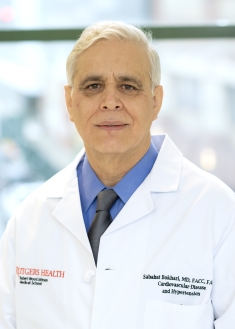
Director of the Amyloid Center of Excellence
Robert Wood Johnson University Hospital (RWJUH) and Rutgers Robert Wood Johnson Medical School (RWJMS) have established the Amyloid Center of excellence to diagnose patients with rare, but potentially fatal, amyloid conditions earlier and treat them more effectively through personalized medicine.
Patients in the Amyloidosis Center at RWJUH and Rutgers RWJMS benefit from a multidisciplinary team approach that includes specialists across a broad range of disciplines such as heart and vascular care, neurology, hematology, nephrology, pathology and bone marrow transplantation. The clinical teams work together to identify the forms of the disease and develop an effective, individualized treatment plan.
Sabahat Bokhari, MD, an internationally recognized amyloidosis expert, serves as director of the center, the first program of its kind in New Jersey. Dr. Bokhari has made significant contributions to the proper diagnosis of amyloidosis. He pioneered the development of a noninvasive imaging method called technetium-99m pyrophosphate scintigraphy (PYP) imaging, which is used worldwide and is recommended by professional medical organizations such as the American College of Cardiology, the American Heart Association, and the American Society of Nuclear Cardiology for evaluating a form of the disease called cardiac transthyretin amyloidosis.
What is Amyloidosis?
Amyloidosis is a rare, progressive, debilitating and fatal disease that happens when abnormal proteins build up in different organs, like the heart, kidneys, liver, and nerves. This buildup can make it hard for these organs to work properly and may lead to serious health problems if not treated.
There are 42 proteins that cause amyloidosis, and it is essential to confirm the diagnosis of amyloid and the specific subtype to determine the optimal treatment approach.
The two most common are:
-
AL (Light Chain) Amyloidosis – caused by abnormal cells in the bone marrow and linked to multiple myeloma (a type of blood cancer).
-
Transthyretin (ATTR) Amyloidosis – caused by too much of a protein called transthyretin (TTR), made by the liver. ATTR has two causes: the first is unknown but associated with aging, and the second is due to genetic variants. Over 150 genetic mutations have been identified within the TTR gene, which are associated with amyloidosis. Some forms of ATTR are inherited, so family members may need to be tested.
Doctors treat amyloidosis based on the type and which organs are affected. Specialists in blood disorders, heart health, and nerve diseases work together to help manage the condition. While amyloidosis can be serious, treatments are available to improve symptoms and prevent complications.
Making the Diagnosis
Diagnosing amyloidosis requires a combination of laboratory tests, imaging techniques, and/or tissue biopsies to confirm amyloid deposition and determine its subtype.
| Laboratory Testing: |
|---|
|
| Diagnostic Imaging: |
|---|
|
| Tissue Biopsy for Confirmation: |
|---|
|
A nuclear scan helps detect amyloid in the heart but cannot differentiate between AL and ATTR amyloidosis. A biopsy is often required for definitive diagnosis, using Congo red staining to detect amyloid deposits. Additional testing, including immunofluorescence staining, electron microscopy, and mass spectrometry, is performed to determine the amyloid subtype. |
| Common Biopsy Sites: | |
|---|---|
|
|
A thorough and precise diagnosis is essential to guide the appropriate treatment approach for each patient.
Patient Resources

Patient Resources
Our Team
Accordion Content
-
Sabahat Bokhari, MD
Director of the Amyloid Center of Excellence
Director, Advanced Cardiac Imaging
Program Director of Advanced Cardiac Imaging Fellowship and Amyloidosis Fellowship
Professor of Medicine, Division of Cardiovascular Disease, Rutgers Robert Wood Johnson Medical SchoolPartho Sengupta, MD
Chief of the Division of Cardiovascular Diseases & Hypertension, RWJMS
Chief of Cardiac Services, RWJUH
Clinical Trials
Accordion Content
-
A Randomized Comparison of Stage-Based Care Versus Risk Factor-Based Care for Prevention of Cardiovascular Events (TRANSFORM)
-
TRANSFORM is a prospective, randomized, open-blinded, event-driven trial in patients at increased risk for atherosclerotic cardiovascular disease (CVD) but with no known symptoms. It tests whether a Cleerly Coronary Artery Disease Staging System-based care strategy reduces CV events compared to risk factor-based care.
Principle Investigator: Dr. Sabahat Bokhari, MD
Sponsor: Cleerly, Inc.
Call 732-418-8189 or visit https://clinicaltrials.gov/study/NCT06112418 for more information.
-
-
Non-interventional Study of Patients With Transthyretin (ATTR) Amyloidosis (MaesTTRo)
-
The MaesTTRo study aims to enroll a global cohort of patients with transthyretin (ATTR) amyloidosis to observe the disease’s natural course and real-world treatment patterns and outcomes. It will also collect data on the effectiveness of ATTR treatments, including eplontersen, a gene-silencing treatment targeting both mutant and wild-type TTR proteins.
Principle Investigator: Dr. Sabahat Bokhari, MD
Sponsor: AstraZeneca
Call 732-418-8189 or visit https://clinicaltrials.gov/study/NCT06465810 for more information.
-
-
Randomized, Multicenter, Double-Blind, Placebo-Controlled Study of Acoramidis for Transthyretin Amyloidosis prevention in the young (ACT-EARLY Trial)
- ACT-EARLY is a Phase 3, randomized, multicenter, double-blind, placebo-controlled study evaluating the prevention of symptom expression in Hereditary ATTR Amyloidosis using Acoramidis. The study population consists of younger individuals with the genetic vATTR disease but asymptomatic.
Principle Investigator: Dr. Sabahat Bokhari
Sponsor: Eidos Therapeutics
Call 732-418-8189 or visit https://clinicaltrials.gov/study/NCT06637644 for more information.
-
The goal of this project is to analyze healthcare data to identify trends in patients diagnosed with ATTR who have experienced treatment abandonment, discontinuation, or failure. The objective is to improve patient outcomes and assess healthcare resource utilization. An educational intervention will be developed to raise awareness, provide patient care recommendations, and optimize treatment strategies.
Principle Investigator: Dr. Sabahat Bokhari
Sponsor: Alnylam Pharmaceuticals
Call 732-418-8189 for more information.
Contact Us
To schedule an appointment, please call 1-866-NJAMYLOID / 1-866-652-6956
Hypertrophic Cardiomyopathy Center of Excellence
HCMCE @ RWJMS & RWJUH
The Hypertrophic Cardiomyopathy (HCM) Center of Excellence at Robert Wood Johnson University Hospital, part of Rutgers Robert Wood Johnson Medical School, is a comprehensive initiative dedicated to the diagnosis, treatment, and long-term management of hypertrophic cardiomyopathy. Established in November 2022, HCMCE integrates advanced imaging, genetic evaluation, innovative therapies, and a collaborative multidisciplinary approach. Anchored within New Jersey’s largest academic health system, it serves patients and families across central New Jersey, southern New Jersey, and the surrounding regions. With experienced leadership, a growing referral network, and an expanding research portfolio, the program is positioned to become the premier destination for HCM care in the state.
What is HCM?
Hypertrophic Cardiomyopathy (HCM) is a multifaceted genetic heart disorder characterized by abnormal thickening of the heart muscle, which can obstruct blood flow and lead to symptoms such as chest pain, shortness of breath, fatigue, and irregular heart rhythms. HCM affects about 1 in 500 people but is often underdiagnosed, with only around 100,000 individuals in the U.S. currently receiving treatment. Although not rare, HCM is frequently overlooked and underdiagnosed. Since it is inherited, early detection and family screening are essential for effective management. Without proper treatment, HCM can lead to serious complications, including sudden cardiac death. HCM is also the leading cause of sudden cardiac death in athletes, making awareness and screening especially critical for athletic communities such as Rutgers. At our clinic, we utilize advanced diagnostics, personalized therapies, and interventional procedures when necessary to improve heart function and reduce risks.
Making the Diagnosis
The HCM Program provides comprehensive, patient-centered services, including:
Initial Evaluation
- Detailed medical history and physical exam
- Electrocardiography (ECG)
- Echocardiogram
- Heart rhythm monitoring
Advanced Imaging
- Resting and stress echocardiography
- Cardiac MRI
- Cardiac CT
- Positron Emission Tomography (PET)
Genetic Counseling & Testing
- Risk assessment for first-degree relatives
- Family screening for inherited cardiomyopathy
- Pre and Post Genetic Test Counseling
- Long-term guidance and support
Medical & Interventional Therapies
- Medication management, including Camzyos and Norpace
- Septal myectomy
- Alcohol septal ablation
- Implantable cardioverter-defibrillators (ICDs)
- Permanent Pacemakers
Outpatient Clinic
- Appointments at the new Ambulatory Medical Pavilion
- On-site ECG, Echocardiogram, MRI, PET, CT, and stress testing
- Seamless coordination with pediatric cardiology, electrophysiology, advanced heart failure, and cardiac surgery teams
Patient Resources

Patient Resources
Research and Education
Research
Our clinic is deeply committed to advancing the understanding and treatment of hypertrophic cardiomyopathy through active involvement in multiple clinical trials. These include NIH-sponsored studies as well as industry-funded research focused on “big heart” conditions. By participating in these cutting-edge trials, we contribute to the development of innovative therapies and improved patient outcomes. This commitment ensures that our patients have access to the latest advances in HCM care and that we remain at the forefront of evolving treatment options.
Learn More about Dr. Bokhari's Publications
Education
We are equally dedicated to educating and training the next generation of HCM specialists. Our Amyloid/HCM fellowship program provides a comprehensive and immersive learning experience. The program is directed by our clinic director, who serves as the fellowship program director. Fellows benefit from hands-on exposure to complex cases, multidisciplinary collaboration, and involvement in pioneering research at a recognized center of excellence. Through this fellowship, trainees gain the clinical expertise and research skills necessary to become future leaders in the diagnosis, management, and treatment of hypertrophic cardiomyopathy and cardiac amyloidosis.
Our Team
Accordion Content
-
Sabahat Bokhari, MD
Director of the Amyloid Center of Excellence (ACE)
Co-Director of the Hypertrophic Cardiomyopathy Center of Excellence (HCMCE)
Director, Advanced Cardiac Imaging
Program Director of Advanced Cardiac Imaging Fellowship and Amyloidosis Fellowship
Professor of Medicine, Division of Cardiovascular Disease, Rutgers Robert Wood Johnson Medical School -
William Kostis, MD, PhD
Professor of Medicine
Section Chief of Electrophysiology -
Maya Guglin, MD
Professor of Medicine
Section Chief of Heart Failure
Co-Director of the Hypertrophic Cardiomyopathy Center of Excellence (HCMCE) -
Leonard Lee, MD
James W. Mackenzie, M.D. Endowed Chair in Surgery, Professor and Chair, Department of Surgery, Rutgers Robert Wood Johnson Medical School
Chief, Surgical Services, Robert Wood Johnson University Hospital -
Ashok Chaudhary, MD
Associate Professor of Medicine
Program Director of the Interventional Cardiology Fellowship -
Nicole Marella, MD
Assistant Professor of Pediatrics
-
Ally Joseph, RN, BSN
-
Nidara Fields-Hill, MPA
-
Neepa Mathia, CMA
Contact Us
Location:
Ambulatory Medical Pavilion
210 Somerset Street, 8th Floor
New Brunswick, NJ 08901
Parking:
Valet Parking available.
Covered parking is also available at New Brunswick Parking Authority deck at 50 Plum Street. Exit the lower level (LL) of the parking garage onto Plum Street or Prospect Street and proceed towards Somerset Street to the main lobby entrance. Please bring your parking ticket in to the office so we can provide a validated discount.

